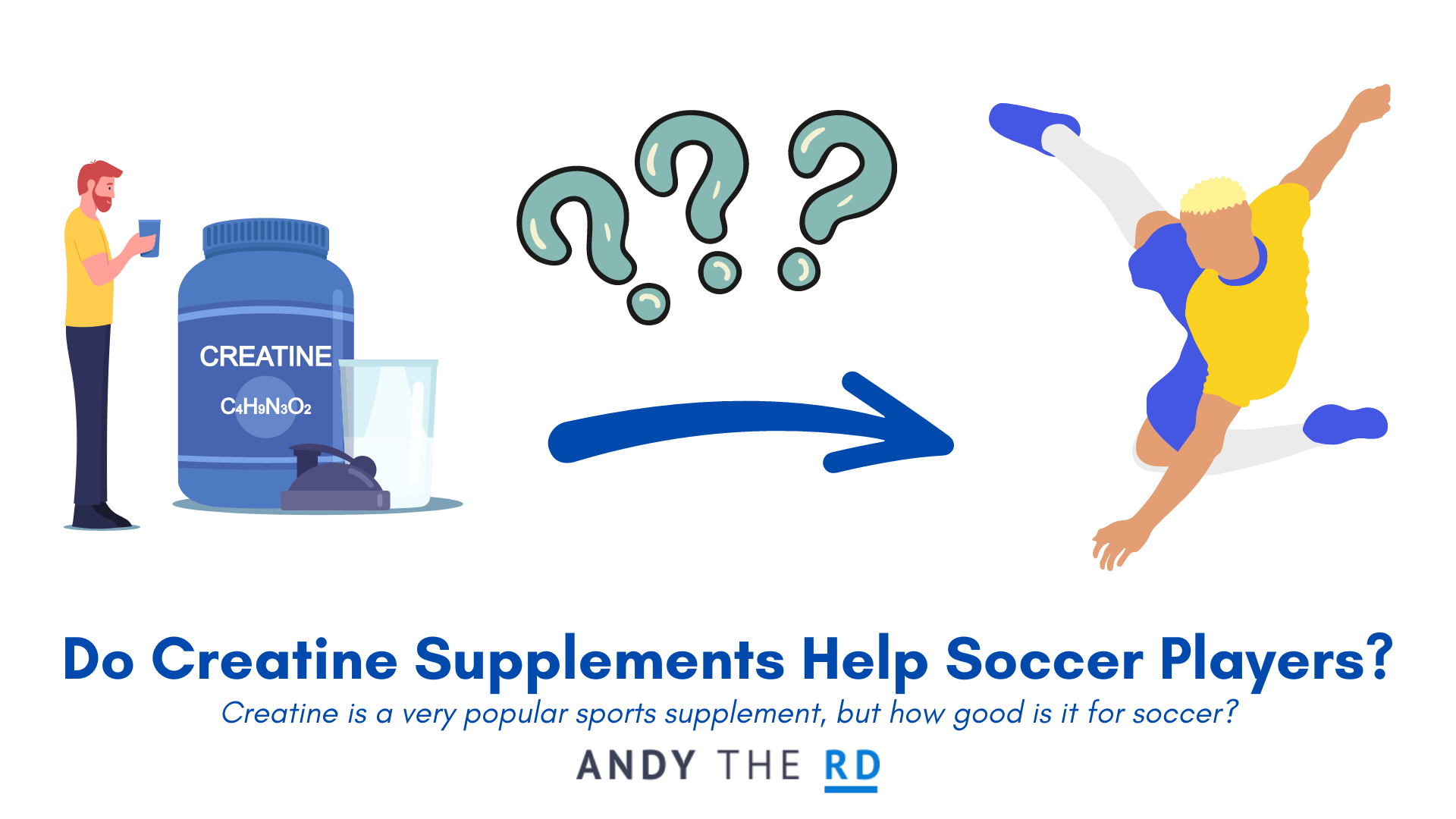Creatine is one of the most popular and widely used supplements in the world of athletic performance, but that doesn’t mean it automatically improves performance in all sporting activities.
Soccer is a unique and physiologically demanding sport, often requiring the ability to perform well in repeated short bursts as well as cover long distances over the duration of a full game.
I’ve worked with soccer players of various ages and skill levels on sports nutrition strategies for the last several years, and can’t help but notice the extent to which questions on creatine use arise in this population.
That’s precisely why I’ve had my talented writing volunteer Mashaal lead us on an exploration of the science around creatine use specifically for soccer player performance.
Are these physiological demands of soccer conducive to enhancement through creatine supplementation?
Let’s find out.
Creatine For Soccer Players
Research and writing led by Mashaal Junaid, with review and edits by yours truly.
The goal of today’s article is simply to explore current evidence around the utility of creatine use as a performance booster in soccer players.
To help answer that question, I turned to a 2019 systematic review and meta-analysis published in the Nutrients journal.
The paper included 9 studies, all of which were double blind randomized controlled design.
Creatine Did Not Help With:
- Aerobic Performance – More or less refers to what we think of as “endurance”, or the ability to put forth moderate effort over an extended period of time.
- Single Jump/Sprint/Agility – In this meta-analysis, creatine use did not improve player’s sprint speed, jumping ability or agility in single tests of these feats.
Creatine Did Help With
- Anaerobic Performance/Wingate Test – Think of situations where you need put forth a maximum or near maximum effort repeatedly or continuously over a period of up to 90 seconds. It does appear, based on this paper, that creatine supplementation helps in this area.
Since creatine helps provide energy to your muscles during periods of high energy demand, it is unsurprising that it was found to be beneficial in tests of this nature.
Dosages Used
- 20-30 grams a day spread over 3-4 doses over a 7 day period followed by 5 grams a day for 9 weeks ( OR 3 mg/kg body weight for 14 days)
Practical Implications
Soccer is a unique and dynamic sport, meaning it is not necessarily easy to replicate the true athletic demands it requires in scientific studies.
The available evidence seems to suggest that creatine will not provide you that extra endurance for a match going to extra time, nor will it increase your top sprint speed in the context of a soccer game.
What it may do, however, is improve your ability to work harder in specific drills or game situations that involve continued or repeated bursts of energy in that 30-90 second range.
Creatine also has a number of performance and adaptation benefits for those engaged in strength/resistance training.
This might explain why a 2017 Sports & Science Paper suggested creatine use may be most optimal during pre-season where strength training and high-intensity anaerobic drills are often at their peak.
Andy & Mashaal



